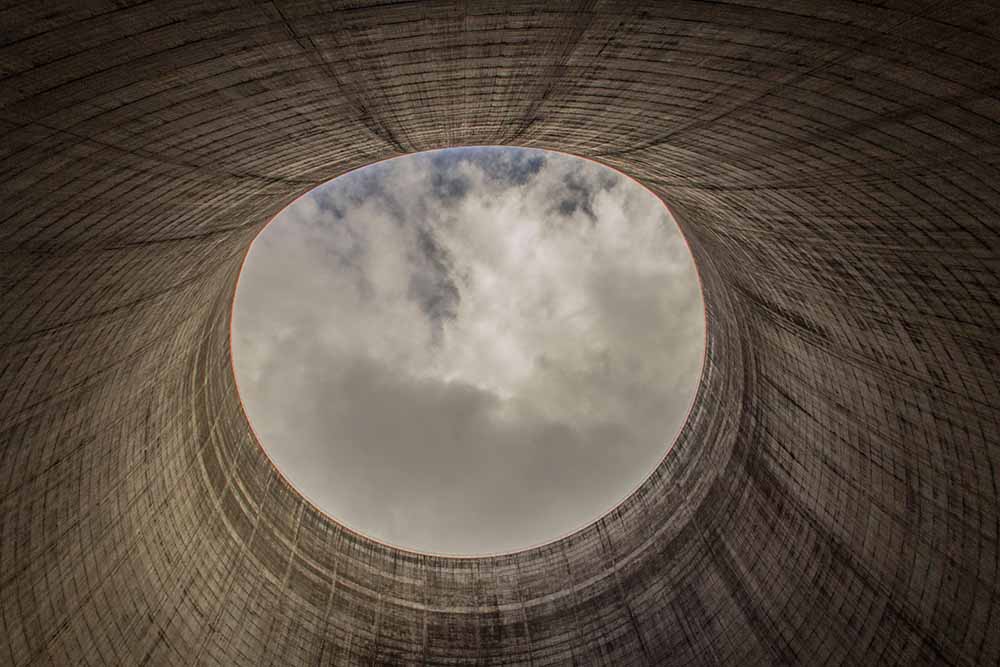For a long time, nuclear fusion has been a sci-fi fantasy; the holy grail of energy production that involves the combination of multiple atomic nuclei to generate energy. It’s the same process used by the sun to create energy, and the opposite of nuclear fission, whereby atoms are split in two.
Canadian and British innovators, however, are bringing this incredible technology to life and, in the process, could unite warring climate alarmist and climate skeptic factions.
Fusion energy production requires less fuel than fission, and that fuel is inexpensive. It is a long-term and sustainable source of energy, and the nuclear waste seen with typical nuclear fission plants is not replicated with fusion plants. This technology presents an opportunity to finally stop building wind turbines on every natural beauty spot and solar panels in countries that simply don’t see that much sun, and could offer welcome relief from international climate alarmism and extremism of Extinction Rebellion.
Currently, nuclear fission produces around 10 per cent of global energy demand and according to EUROfusion, a group of research bodies in European Union member states, fusion reaction plants could potentially provide roughly another 10 per cent of the world’s energy needs into the future. In time, that figure could also dramatically increase.
After decades of experimentation, and breakthroughs in 2014 that saw scientists generating more energy than they used to create the reaction, researchers now believe that the technology is ready for prime time. This summer, nuclear scientists in Los Angeles revealed how lasers as large as three football fields were used to generate huge amounts of energy from nuclear fusion reactions. Some 200 laser beams were focused onto one spot to create a burst of energy eight times larger than any experiment in the past.
And while EUROfusion’s research bodies continue to advocate for this new technology, it is the United Kingdom—newly independent from the European Union—that is leading the way with Canada in adopting fusion and preparing for this energy source of the future.
After the United Kingdom’s Atomic Energy Authority (UKAEA) called for proposals for new sites for a prototype fusion plant in December 2020, it was decided this year that it will be constructed in Oxfordshire. The new plant, designed by architectural firm AL_A, will be located on the UKAEA campus in Culham and will be used to prove the viability of a project by Canadian energy company General Fusion.
The plant and campus are expected to be completed in 2025 and should cost an estimated US$400 million. It’s a large investment, but it’s significantly less than the EUR€20 billion “ITER” project that is still many years behind schedule.
Canadian innovators plan to use mechanical pressure to contain the gigantic amount of heat and plasma generated during the fusion process, rather than using huge electromagnets as other plants are expected to experiment with. Mechanical pistons will be used to squeeze the fuels on all sides at the same time, creating intense pressure that generates heat.
If it works, it could prove a huge economic boost for both the United Kingdom and Canada. Not only are nuclear fusion experiments creating jobs now—with research centres already located in 26 countries including the United States, United Kingdom, Korea and Japan—but these power stations offer opportunities long into the future.
Well beyond the possibility of uniting climate skeptics and green activists around the possibility of energy efficiency, nuclear fusion power stations like the one being built in the United Kingdom have the potential of generating thousands, even millions of jobs globally—from the management and maintenance of these plans to fuel and waste logistics, and the manufacturing of the plants themselves. 
It’s the kind of win-win scenario the world needs right now, and another great example of how an independent Britain can cooperate so well with Canada. It is greener, cheaper, more efficient and could generate a huge number of jobs—goals that climate alarmists and skeptics can surely unite behind, right as the world prematurely shifts away from fossil fuels to “green” technology that so evidently isn’t ready yet.
The possibility of this nuclear fusion technology uniting these factions in government, politics and society, however, all depends on whether green activists are genuinely willing to concede that solar and wind power just aren’t ready for prime time yet, and that nuclear technology—even with its historical baggage—is the right solution.
Rejection of such potential, either by politicians or activists who influence the politicians, could ultimately boil down to green activists’ desire to perpetually protest.
Jack Buckby is a research associate with the Frontier Centre for Public Policy.
Photo by Jakob Madsen on Unsplash.



